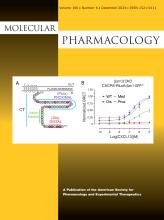Abstract
Amitriptyline is a classic tricyclic antidepressant (TCA) and has been used to treat depression and anxiety of cancer patients but its relevance to cancer cell apoptosis is not known. In the present study, we demonstrated that amitriptyline inhibited cyclin D2 transactivation and displayed potential anti-myeloma activity by inhibiting histone deacetylases (HDACs). Amitriptyline markedly decreased cyclin D2 promoter-driven luciferase activity, reduced cyclin D2 expression and arrested cells at the G0/G1 phase of the cell cycle. Amitriptyline-induced apoptosis was confirmed by Annexin V staining, cleavage of caspase-3 and PARP-1. D-cyclin expression is reported to be epigenetically regulated by histone acetylation. Thus, we examined the effects of amitriptyline on Histone (H3) acetylation and demonstrated that amitriptyline increased acetylation of H3 and expression of p27 and p21. Further studies indicated that amitriptyline downregulated at least HDAC3, -6, -7 and -8, but not HDAC2 in examined myeloma cell lines. Molecular docking analysis and molecular dynamics simulations revealed that amitriptyline bound to HDAC7 and formed strong van der Waals interactions with five residues of HDAC7, including Phe162, His192, Phe221, Leu293 and His326, thus inhibiting HDAC activity. Therefore, we found that amitriptyline inhibited cyclin D2 transactivation and HDAC activity and could be a promising treatment for multiple myeloma.
- Received August 12, 2010.
- Revision received December 17, 2010.
- Accepted January 6, 2011.
- The American Society for Pharmacology and Experimental Therapeutics






